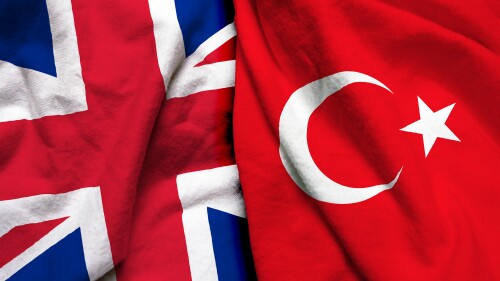Canada hosts the second-largest Iranian diaspora. As of 2021, the community numbered approximately 200,000, if not more. Over the past three decades, Canada’s sustained demand for immigration has created favorable conditions for Iranians seeking greater political freedom and economic opportunity. However, former Islamic Republic officials exploit Canadian immigration amidst Ottawa’s neglect and an immigration policy oriented toward attracting high net worth individuals.
Many former regime officials have initiated a rebranding campaign—adopting opposition personas—to embed themselves within both the Iranian-Canadian opposition community and the Canadian political establishment.
In 2024, the Canadian parliament passed legislation designating all senior officials of the Islamic Republic who served after June 23, 2003, as ineligible for entry, residency, or settlement in Canada. Yet, instead of departing, many former regime officials have initiated a rebranding campaign—adopting opposition personas—to embed themselves within both the Iranian-Canadian opposition community and the Canadian political establishment. Their objective is clear: to escape accountability for their actions and preempt deportation.
Investigative journalists such as Kamran Malekpour and other prominent British-Iranian opposition figures such as Vahid Beheshti have exposed some of these individuals, some of whom fake support for prominent Iranian opposition figures such as Reza Pahlavi, strategically positioning themselves in major urban centers like Toronto, where they have greater access to the media. Some seek out appearances alongside Canadian conservative politicians to generate a veneer of legitimacy.
Malekpour has identified several former Iranian regime officials who have rebranded themselves as opponents of the regime in Canada, such as Sadeq Ziyaei Bigdeli, former deputy director of Iran’s Trade Promotion Organization under President Hassan Rouhani and senior negotiator for World Trade Organization accession. He now works as an immigration lawyer in Ontario.
Two former members of the Iranian parliament, Hassan Almasi and Seyed Mohammadreza Milani Hosseini, also reside in Canada. Almasi, a former two-term representative of Parsabad, Bileh Savar, and Moghan, is currently based in Vancouver, where he is involved in real estate and currency exchange. Hosseini, who represented Tabriz during the fifth Majlis term, resides in Toronto; however, details of his current professional activity remain unclear.
Mahdi Nasiri, a former senior representative of Supreme Leader Ali Khamenei, ... recently immigrated to Canada.
Mahdi Nasiri, a former senior representative of Supreme Leader Ali Khamenei, held multiple influential roles within the Islamic Republic, including managing director of Kayhan newspaper and deputy representative of Khamenei’s office in the United Arab Emirates. Nasiri recently immigrated to Canada, but not without controversy. Anticipating potential challenges to his residency, he began publicly to identify himself as a critic of the regime and a supporter of Reza Pahlavi shortly before submitting his visa application. He also claimed that Iranian security forces in Mashhad had detained him for seven hours—a claim that could be calculated to support his asylum narrative. Iranian opposition figures including Vahid Beheshti have expressed skepticism regarding Nasiri’s true affiliations, drawing parallels to Mohammad-Reza Madhi, an intelligence operative for the Islamic Revolutionary Guard Corps who infiltrated opposition groups abroad in 2010.
Another figure, Seyed Salman Samani, a former deputy minister of Interior, received a Canadian deportation order in February 2024. According to Malekpour, Samani has now declared opposition to the Islamic Republic to remain in Canada after obtaining political asylum, mirroring the broader trend among former officials seeking refuge through political rebranding.
Beyond Bigdeli and others, several other recent regime officials leverage their financial assets and contacts from influential Iranian celebrities, social media personalities, and segments of opposition media to rebrand themselves as dissidents. Their goal, however, is likely not merely reputational rehabilitation, but operational integration. Intelligence assessments suggest that some of these individuals act as agents of the Islamic Revolutionary Guard Corps’ Intelligence Organization and the Iranian Ministry of Information and Security, conducting espionage within Canada.
Should individuals with regime ties gain political influence, they could co-opt Canadian foreign policy in favor of Tehran’s strategic ambitions.
The Canadian Security Intelligence Service has enabled Iranian infiltration by allowing hostile actors to operate freely. The agency’s inability—or unwillingness—to identify and intercept Iranian influence operators poses a threat not only to the integrity of Iranian opposition movements but also to Canadian national security. Should individuals with regime ties gain political influence, they could co-opt Canadian foreign policy in favor of Tehran’s strategic ambitions.
Canada’s permissiveness to Iranian regime officials and members of myriad Palestinian, Lebanese, and Pakistan-backed terror groups make it increasingly a security liability. The U.S. Departments of State and Homeland Security, as well as U.S. intelligence and law enforcement, should engage Canadian counterparts to ensure that Canada complies with its own existing Canadian immigration law regarding the inadmissibility of former Iranian officials and reassesses its counterintelligence protocols and priorities. Failure to act will only embolden Tehran’s proxies, deepening the penetration of Canadian institutions and undermining security cooperation.







